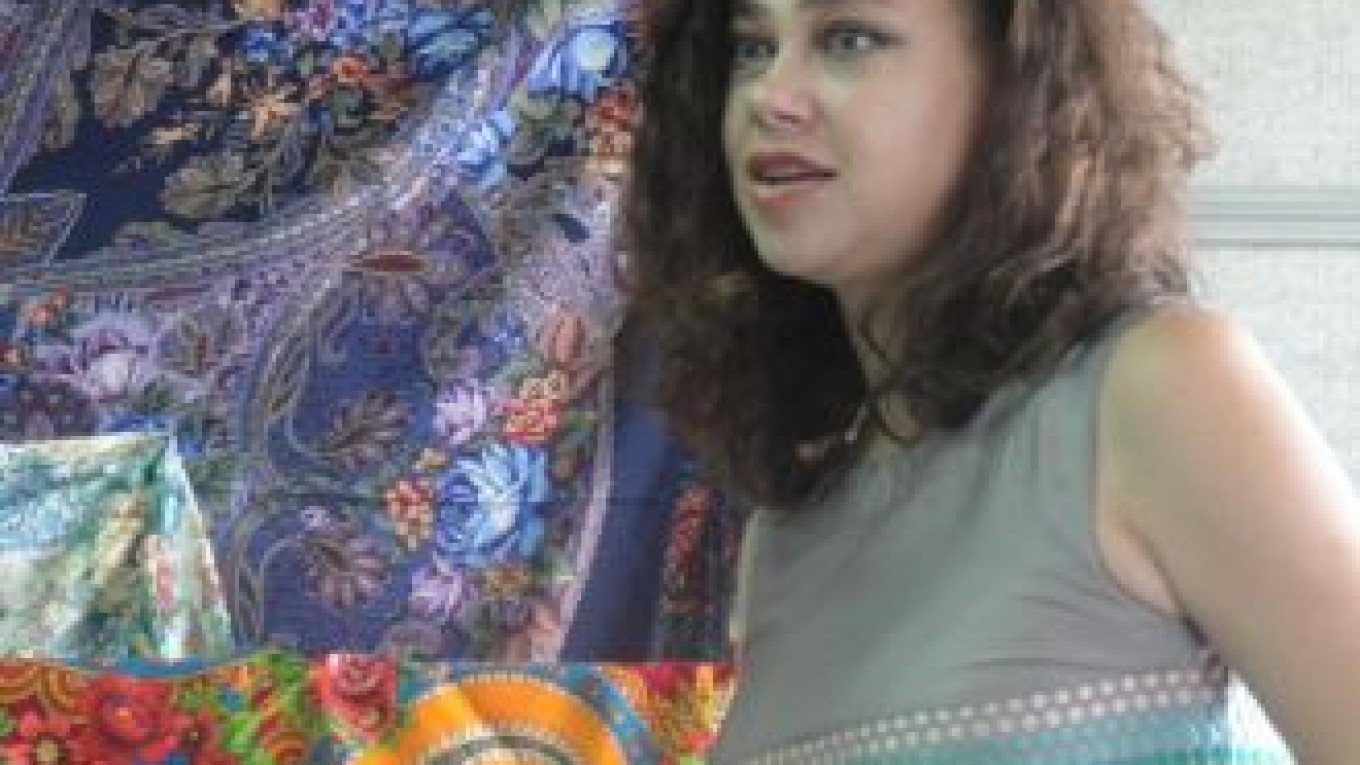Viktor Zubritsky, head artist at the Pavlovoposad Scarf Manufacturer, holds up a large red shawl with printed swirls that join together to enclose a vase with delicate pink roses. The shawl is distinctly Russian and fittingly bears the name Rus.
"We are creating real art," Zubritsky said. "A customer sees our crafts not just as a utilitarian object that is warm and comfortable in bad weather, but as art that she can draw strength from during difficult times in life."
But the name is now one of the only things that connect the garment to its national origin. Traditional shawls, such as Rus, are no longer made with Russian machinery and materials because the domestic textile industry does not offer competitive products.
The Rus shawl comes from a 216-year-old scarf factory at Pavlovsky Posad and is one of 50 items in a collection that has been nominated for the Allied State Award in Literature & Art this year. The factory's scarves, some of which feature designs more than 100 years old, are well-known relics of Russian culture.
The scarf designs are still drawn by Russian artists, but the factory's textile equipment and materials are foreign. The factory orders its printing frames from Italy, specialized fabrics from Switzerland, varnish from Japan, silk from China, wool from Australia or New Zealand, and paint from European suppliers.
"There is nothing like this in Russia," said Vyacheslav Dolgov, the factory's deputy general director. "To make all these products, there is nowhere in Russia we can go."
The factory got raw materials through a centralized supply network during the Soviet period, but it couldn't find any quality suppliers after the system broke down.
The Russian textile industry has been in a steady decline since the Soviet Union collapsed. It produced 12 billion square meters of fabric in 1991, but this number has now fallen to 3 billion, said Sergei Lukyanov, chairman of the board of directors at the wholesale textile complex Textile Profy.
Many silk, wool and knitwear factories have closed, and some of the remaining factory equipment dates back to Stalinist times, Lukyanov said. Eighty percent of the fabrics on the market are imported.
"All you can make from Russian fabrics is either a mattress or a padded jacket," Lukyanov said.
The Russian government offers textile producers partial compensation for their bank loans and doesn't require them to pay tariffs on imported equipment. But industry representatives say these measures are not enough.
"They are not felt by the majority of the market members," Lukyanov said.
Lukyanov encouraged the government to put quotas on imported textile products and charge higher tariffs on imported ready-made items to help the industry recover.
The Pavlovoposad factory will keep making its garments from foreign materials until that happens. "There is no other way," Dolgov said.
A Message from The Moscow Times:
Dear readers,
We are facing unprecedented challenges. Russia's Prosecutor General's Office has designated The Moscow Times as an "undesirable" organization, criminalizing our work and putting our staff at risk of prosecution. This follows our earlier unjust labeling as a "foreign agent."
These actions are direct attempts to silence independent journalism in Russia. The authorities claim our work "discredits the decisions of the Russian leadership." We see things differently: we strive to provide accurate, unbiased reporting on Russia.
We, the journalists of The Moscow Times, refuse to be silenced. But to continue our work, we need your help.
Your support, no matter how small, makes a world of difference. If you can, please support us monthly starting from just $2. It's quick to set up, and every contribution makes a significant impact.
By supporting The Moscow Times, you're defending open, independent journalism in the face of repression. Thank you for standing with us.
Remind me later.






